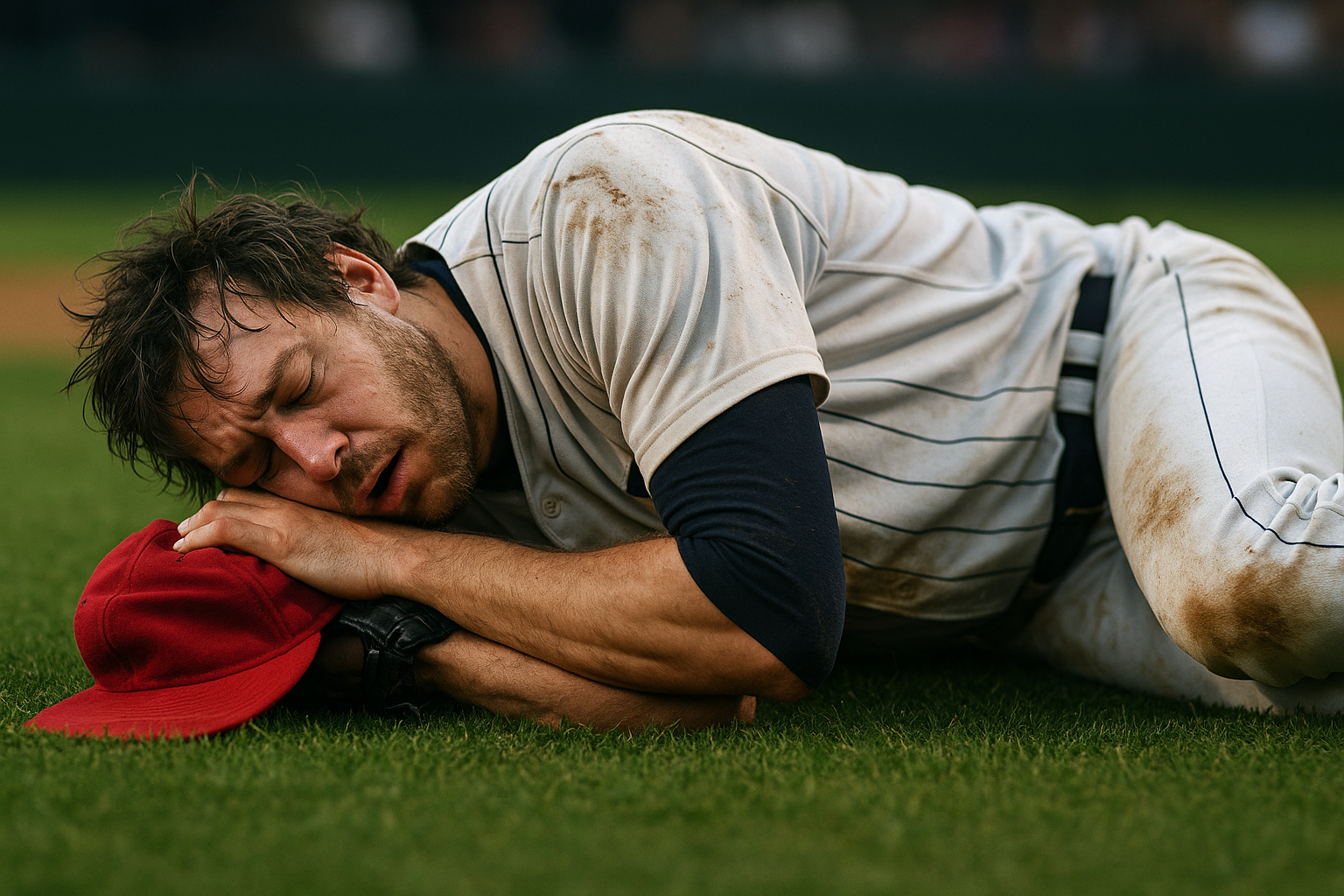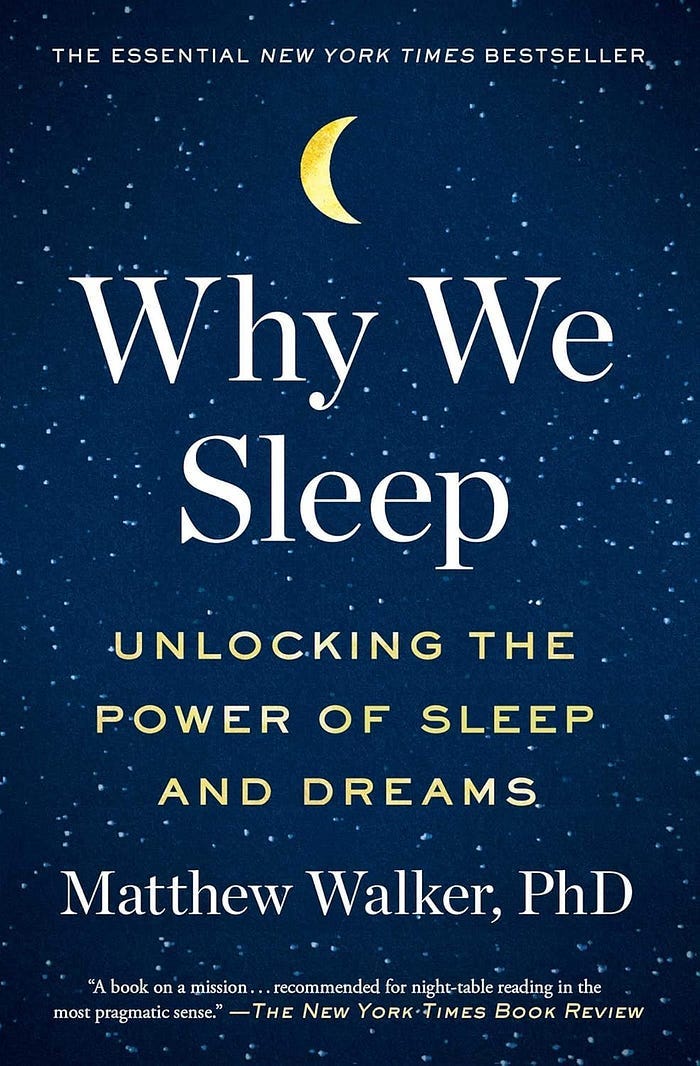In one of the most revealing studies of sleep’s impact on professional sports, researchers gave Major League Baseball players a simple sleepiness questionnaire. Eighteen months later, 75% of players who scored in the “clinical sleepiness” range were out of the major leagues. This wasn’t just correlation — it predicted career longevity better than traditional performance metrics.

The Study That Changed Everything
Led by Scott Kutscher, the research revealed a stunning dose-response relationship: for every point higher on the sleepiness scale, career longevity decreased, independent of other performance factors. The implications were staggering — a simple questionnaire had more predictive power than years of scouting reports and performance analytics.
Beyond Baseball
This finding sparked further research into collegiate athletics, where Dr. Grandner’s team made an even more startling discovery. As he explained, “How sleepy they were over the summer before they started the season… completely independently predicted who was going to get a concussion better than what sport they played, prior concussion history, or gender.” The reach of sleep’s impact extended far beyond what anyone had imagined.
Why It Matters
This isn’t just about feeling tired. The research suggests sleep quality serves as a predictor of career longevity, an indicator of injury risk, and proves more important than traditional risk factors while often being overlooked in talent evaluation. What makes these findings so significant is how they challenge conventional wisdom about what determines athletic success.
The Science Behind the Numbers
Sleep impacts athletic performance through multiple interconnected pathways. Cognitive processing speed becomes compromised when sleep quality deteriorates, affecting split-second decisions that can make or break careers. Physical coordination suffers, recovery capacity diminishes, and injury resilience weakens — creating a cascade of performance issues that compound over time.
What Makes This Rule So Powerful
The power of this 3-minute assessment lies in its ability to identify at-risk athletes before problems occur, predict career-altering outcomes, and offer a crucial chance for intervention. Unlike traditional performance metrics that only show what’s already happening, sleep assessment reveals what’s coming next.
Practical Applications
For athletes and coaches seeking to leverage these insights, implementation requires a strategic approach across three key areas.
Regular Assessment becomes the foundation of career protection. Implement consistent sleep quality screenings throughout the season, tracking trends over time and looking for patterns that might indicate developing issues. Most importantly, identify and address potential sleep problems before they begin affecting performance.
Early Intervention transforms potential problems into manageable challenges. When sleep issues are identified, address them immediately and proactively. Create clear sleep hygiene protocols that athletes can follow, and develop comprehensive recovery strategies that prioritize quality sleep as a non-negotiable element of training.
Career Protection requires thinking of sleep as a fundamental career investment, not a luxury. Prioritize sleep quality improvement as part of your professional development, and build proper sleep habits early in your career. These habits could be the difference between a long career and an early exit from professional sports.
The Bottom Line
The difference between staying in the majors and losing your career might come down to something as simple as sleep quality. Don’t wait until performance drops to address it — by then, the damage may already be done, and the window for intervention may have closed.
Your Challenge This Week
Take the free sleep assessment at sleephealthscreen.com (recommended by Dr. Grandner). If you identify any red flags, consult a sleep specialist immediately. Your career might depend on it, and the investment in proper sleep evaluation could pay dividends for years to come.
Remember: The best time to address sleep issues is before they impact your performance, not after. The athletes who thrive long-term are those who recognize sleep as the foundation upon which all other performance elements are built.
Want the full sleep story for athletes?
Check out our full podcast episode with Dr. Michael Grandner. We discuss the importance of naps, sleep disorders, and how to go asleep / stay asleep!
Check it out here: https://www.youtube.com/watch?v=Uby8FAliYfU
Book Recommendation
Why We Sleep — https://amzn.to/43fvqcO
This book scared the shit out of me. It made me make some serious changes around my sleep hygiene. In this “compelling and utterly convincing” book, preeminent neuroscientist and sleep expert Matthew Walker provides a revolutionary exploration of sleep, examining how it affects every aspect of our physical and mental well-being. Charting the most cutting-edge scientific breakthroughs, and marshalling his decades of research and clinical practice, Walker explains how we can harness sleep to improve learning, mood and energy levels, regulate hormones, prevent cancer, Alzheimer’s and diabetes, slow the effects of aging, and increase longevity. He also provides actionable steps towards getting a better night’s sleep every night.

